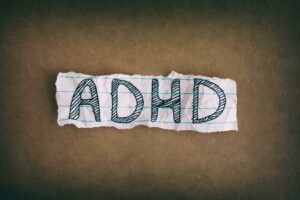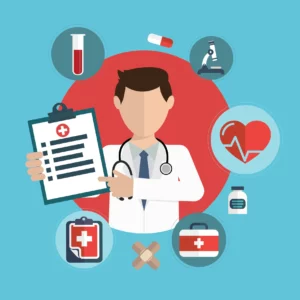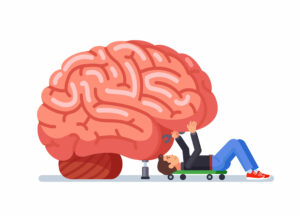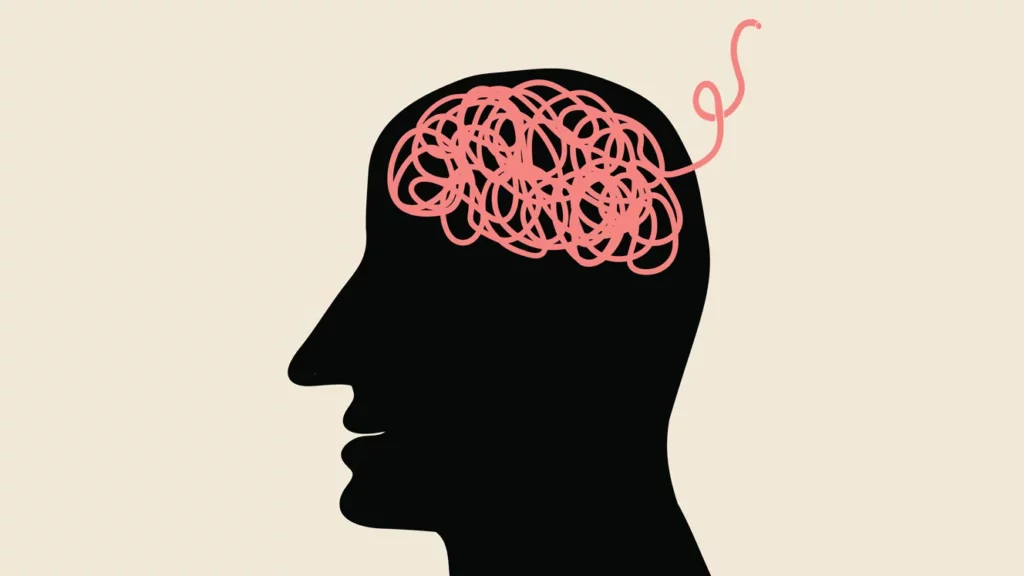Do you have trouble focusing on tasks? Do you feel restless and fidgety a lot of the time? If so, you may be wondering if you have ADHD. Attention Deficit Hyperactivity Disorder is difficult to diagnose, as there is no one-size-fits-all set of symptoms. In this blog post, we will provide a checklist of symptoms that can help you determine if you or a loved one has ADHD. We will also discuss treatment options and how to get help.
Contents
What Is ADHD?

Attention Deficit Hyperactivity Disorder is a neurodevelopmental disorder that affects both children and adults. People with ADHD have trouble paying attention, controlling impulsive behaviors, and maybe excessively active. ADHD can cause problems in school, work, and personal relationships. While there is no cure for ADHD, there are treatments that can help people manage their symptoms.
ADHD can be difficult to diagnose because there is no one specific test that can be used to diagnose the condition. A diagnosis of ADHD typically happens on a combination of factors, including medical history, symptoms, and family history.
ADHD Symptoms
Symptoms of ADHD can vary from person to person, and they may also change over time. The most common symptoms of ADHD include:
If you think you or your child may have ADHD, it’s important to talk to a doctor.
Inattention Symptoms
- Does not seem to listen when spoken to directly
- Has trouble paying attention to details and makes careless mistakes
- Has difficulty sustaining attention on tasks or activities
- Does not follow through on instructions and fails to finish schoolwork or chores
- Has trouble organizing tasks and activities
- Avoids or dislikes tasks that require sustained mental effort
- Loses things necessary for tasks or activities
- Is easily distracted
- Is forgetful in daily activities
Hyperactivity-Impulsivity Symptoms
- Fidgets with hands or feet or squirms in seat
- Has difficulty remaining seated in the classroom or in other situations
- Runs about or climbs excessively in situations where it is inappropriate
- Difficulty playing quietly
- Interrupts or intrudes on others
- Acts as if driven by a motor
- Talks excessively
- Blurts out answers before the question is even complete
- Has trouble waiting his/her turn
It is important to note that symptoms may vary from person to person. Some may have signs of the disorder either from inattention or hyperactivity domain or in a combination of both. The intensity, frequency, and severity of the symptoms may also differ.
ADHD Checklist

ADHD symptoms can often be mistaken for bad behavior or laziness, hence making an individual miss out on receiving a timely diagnosis. If you find it difficult to keep track of your symptoms, you can refer to the given ADHD checklist and answer some common questions to assess yourself.
- Do you have difficulty sustaining attention on tasks or conversations?
- Are you prone to make careless mistakes or forget to complete important tasks?
- Do you have trouble following through on instructions or commitments?
- Are you someone who tends to avoid or procrastinate on tasks that require sustained mental effort?
- Do you lose things necessary for tasks or activities (e.g., school materials, pencils, books, tools, wallets, keys)?
- Is it hard for you to organize your thoughts and keep track of what you’re doing?
- Do you start projects but have trouble finishing them?
- Do you avoid or dislike tasks that require sustained mental effort?
- Is it difficult to focus when background noise or other activity is going on around you?
- Do you often speak out of turn or act without thinking?
- Do you have difficulty sustaining focus on tasks or conversations?
- Are you easily distracted by irrelevant stimuli?
- Do you often forget to do important things?
- Do you have trouble following through on instructions or completing tasks?
- Are you easily sidetracked or overwhelmed by change?
- Do you have trouble processing the information as quickly and accurately as others?
- Do you fidget or squirm often?
- Is it troubling or difficult to sit still for long periods?
- Does your mind feel restless or always on the go?
- Do you talk excessively?
If you answered yes to multiple of these questions, or any of these symptoms interfere with your life in a significant way, there is a huge likeliness of the presence of ADHD. It is important to seek immediatean diagnosis from a professional with a license (such as a psychiatrist or a clinical psychologist) and develop an effective treatment plan.
How Is ADHD Diagnosed?

After referring to the ADHD checklist, if you think you or your child may have ADHD, it is important to see a doctor or mental health professional for an evaluation. To diagnose ADHD, doctors will often use behavior rating scales or questionnaires to assess symptoms. They may also conduct interviews with parents, teachers, and other people who know the person well. In some cases, neuropsychological testing may happen to rule out other conditions.
A doctor can also rule out other conditions that may be causing symptoms and make a diagnosis based on the criteria in the Diagnostic and Statistical Manual of Mental Disorders (DSM).
A diagnosis of ADHD is typically made when a person has several symptoms that are severe enough to cause problems in daily life. symptoms must be present for at least six months and must begin before the age of 12. In order to receive an ADHD diagnosis, a person must have at least eight symptoms from either the inattention or hyperactivity-impulsivity categories. Moreover, adult ADHD diagnosis requires that some of the symptoms have been present since childhood.
It is important to note that ADHD can’t be diagnosed by a blood test or any other medical exam. A comprehensive evaluation is needed to rule out other potential causes of symptoms and make an accurate diagnosis.
Treatment for ADHD
There is no known cure for ADHD, but there are many effective treatments available. Treatment typically involves a combination of medication, behavior therapy, and educational accommodations. The goal of treatment is to help reduce symptoms and improve functioning.
Medication
ADHD medications help you to control impulsivity, increase attention span, and improve concentration. Commonly prescribed medications include stimulants such as methylphenidate (Ritalin) and amphetamines (Adderall). Non-stimulant medications, such as atomoxetine (Strattera), are also sometimes useful.
Therapeutic Interventions
Behavior therapy generally focuses on teaching new skills to help the person with ADHD better cope with everyday challenges. Skills that may be addressed include time management, organization, and anger management.
Cognitive-behavioral therapy (CBT) is a type of psychotherapy that is effective in treating ADHD. CBT focuses on helping the person with ADHD learn how to better manage their symptoms. It may involve developing new skills such as time management and organizational skills, as well as learning how to better cope with frustration and disappointment.
Psychotherapy can also help people with ADHD learn how to manage their relationships, set realistic goals, and cope with the stress of having a chronic condition.
Educational accommodations can also be very helpful in managing ADHD symptoms. Examples of accommodations include extra time for test-taking, preferential seating, and breaks during long class periods.
Support groups can provide valuable information and social support for people with ADHD and their families.
Self Help Tips

There are also many things that people with ADHD can do on their own to help manage their symptoms. Some self-help tips include:
•Taking breaks often and using a timer to stay on task
•Breaking down tasks into smaller, more manageable steps
•Using a daily planner or other organizational tools to keep track of appointments and deadlines
•Putting important items in the same place every day to avoid losing them
•Asking family and friends for help when needed
•Practicing relaxation techniques such as deep breathing or meditation
•Simplifying instructions and breaking them down into smaller steps
•Exercising regularly to help improve concentration and focus and energy levels
• Limiting the number of activities you commit to and learning to say “no” when necessary
If you think you or a loved one may have ADHD, it is important to seek professional help. A comprehensive evaluation by a mental health professional is the best way to receive an accurate diagnosis and begin with treatment. Refer to the ADHD checklist for a self evaluation. With proper diagnosis and treatment, people with ADHD can lead happy and successful lives.
Conclusion
ADHD is a real, diagnosable condition that affects millions of people worldwide. While there is no known cure, there are many effective treatments available. It can be a very debilitating disorder, but there is hope. With proper evaluation of the ADHD checklist, further diagnosis and treatment, many people with ADHD can lead successful, productive lives. If you think you or your child may have ADHD, talk to your doctor about getting evaluated. The sooner you get help, the better.
For more information, please contact MantraCare. ADHD is a neurodevelopmental disorder characterized by difficulty in paying attention, hyperactivity, and impulsivity. If you have any queries regarding Online ADHD Counseling experienced therapists at MantraCare can help: Book a trial ADHD therapy session


